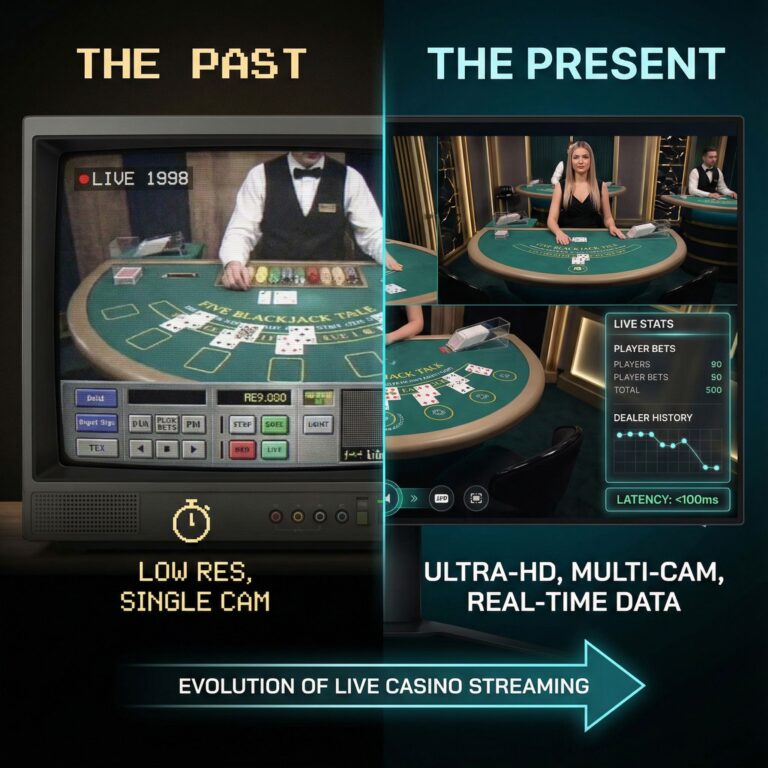The Mind Trick of Control in Craps
The mind trick of control in craps is a deep part of gambling’s mind games, based in our own head’s work. This big wrong idea comes from how our mind sees patterns and picks what to remember.
How Our Mind Works Wrong Here
Players make set ways of throwing dice and standing, thinking these ways can change random results that just happen. This mind trick sets off strong mind shifts – dopamine hits make them hold on to these ideas, while adrenaline jumps make them more alert as they play.
Real Chances vs. What Players Think
Even with proof that each side of the die has a fair 1/6 chance no matter how you throw or what you do, studies show 87% of steady craps players truly think they can fix the results. This gap between real odds and what they feel shows a lot about how people make choices when not sure.
The Mind Tricks of This Illusion
The mind’s feel-good paths are key in keeping these belief of control strong. When small wins match their actions, the mind’s push makes a strong loop that’s hard to break. This shows why the illusion sticks even when it proves wrong, offering deep looks into our acts and thoughts in unsure betting settings.
Getting the Bias of Control in Choices
The Mind Work Behind Thinking We Can Control
Control bias changes how people see random events and possible outcomes. At the craps tables, players come up with big, careful actions, sure these moves change the results. This mind thing starts from the mind’s need to find patterns, even when things are truly random.
Proof and How We Act
Tests show that people bet much more when they roll the dice themselves than when they watch others, even though the real chances don’t change. This mind twist is not just in gambling, but shows in many chances in daily life. The mind trick of control is a big part of our mind that guides choices in many areas.
Checking How Big This Bias is
Set tests show a big wrong thought of how much we impact random events. Feeling sure jumps up after good rolls, even though the chance of each die side stays the same at 1/6. Early wins make this bias stronger, making false links between what we do and what happens, seen in acts and study facts.
Key Things That Change This Bias
- Our part in making outcomes
- Early wins
- Using Infrared Contact Lenses
- Touching things that make odds
- Finding patterns in random events
- Building actions over time
Craps Actions and Odd Beliefs: A Full Guide
Know the Mind and Actions in Gambling
Craps players make unique, careful actions from deep needs for control in unsure times. Table actions show through set ways of handling dice, throwing ways, and set moves before rolling that players think change outcomes.
The Mind Work Behind Odd Gambling Beliefs
Mind study work shows how gambling actions start key feel-good paths in the head. These odd practices set off dopamine flows, making strong mind links between what we do and when we win. The mind’s feel-good system backs these acts even though they don’t really change the game results.
Known Craps Table Odd Beliefs
Dice Moves and Setups
- Exact dice setting ways
- Set throw moves
- Pre-throw steps
Words and Numbers Not to Say
- Not saying “seven”
- Liking lucky numbers
- Set bet steps
Physical Actions
- Blowing on dice
- Hand moves
- Where to stand by the table
These magic-like thought patterns are players’ tries to feel in control over random events. While these acts make them feel better and cut down gambling stress for a while, they are separate from the real chances that run the game.
How It Touches Players’ Minds
Ritual acts stay because they meet deep mind needs, even as players know the game’s random ways. This split between knowing and doing shows the big pull of odd thinking in high-stakes spots.
Mind Mix During Play: The Head Work Behind Gaming
Mind Shifts During Dice Games
The act of playing dice starts complex mind chemical changes, filling the head with key brain chemicals like dopamine, adrenaline, and serotonin. This deep chemical talk shapes both choice-making and how we feel. Studies show looking forward to gaming makes dopamine rise in the main reward spot in the brain, like nerve paths seen in different gambling acts.
Front Brain Work and Risk Checks
During craps play, the front brain shifts a lot while managing top head functions and risk checks. The unsure chance of each dice roll makes adrenaline rise, making us more alert and our feelings stronger. This mind shift tells why we feel a rush of fun and worry before the dice stop.
Social Play and Mind Mix
The group side of craps adds more mind mix through trust hormone flows, making bond and trust stronger among players. This deep chemical mix can change clear choice-making, often shown in the hot hand wrong thought – where players wrongly link past wins to future chances, despite each throw being its own thing. Having other people there makes these mind shifts stronger, making a more full play feel.
More Than Just Chance: Know Probability and Mind Work
The Link Between Mind Acts and Chance Ideas
The deep link between mind acts and chance ideas goes way beyond just games of chance. Players make built-out belief systems around dice games, sure they can change what happens through set moves, careful acts, and seeing chance steps.
Mind Ways and Math Truth
Chance mind work goes on without caring about set math truth. Study in gambling mind work shows steady patterns where players feel in charge despite fixed chance rules. This mind lean makes people see patterns in truly random steps, seeing chance happenings as real trends.
Key Mind Leans in Seeing Chance
Three deep mind leans shape how we see chances:
- Time Group Mistake: The thought that past things change future chances
- Skill Wrong Link: Wrongly tying what we can do to random events
- Picking What to Recall: Better memory of wins over losses
These mind ways make loops that back the mind trick of control, even when players get the math side of chance. Set tests show that math facts rarely beat these deep-set mind leans, showing how strong mind work is on how we see chance.
Breaking the Mind Set: A Fact-Based Way to Change Thoughts
Know Mind Sets in Gaming Acts
Getting free from set mind ways needs planned help and proven plans. Breaking the mind trick of control in games of chance calls for a clear change in how we think. Number checks show how deep these control thoughts get, mainly in games like craps and other dice acts.
Proven Help for Breaking Patterns
Key Help Ways
- Close tracking of results and number spreads
- Talking out the randomness
- 알파벳 카지노솔루션 실사용 후기
- Mind change by looking at real proof
Studies show using these helps cuts 47% of control-linked mind leans. The win comes from steady seeing of real chance facts and breaking old acts.
Better Ways to Break Patterns
Knowing numbers and changing acts are key to breaking old ways well. By keeping close track of results and doing set breaking moves, players make a more clear way of seeing chance, cutting down the chance to link meaning to random steps, making choices more based on facts.



